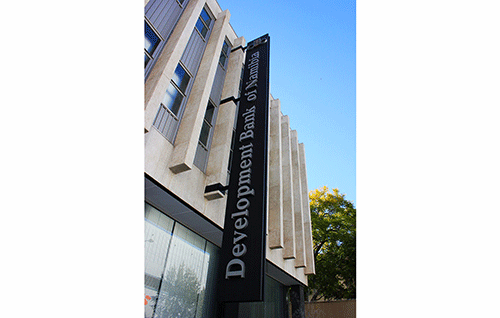Fitch Ratings, a United States of America based ratings agency, has reaffirmed the Development Bank of Namibia with a BB- rating and with a stable outlook. Since July 2022, DBN’s foreign rating has been BB-, and its national rating has been AA+, following a downgrade from BB and AAA respectively.
Fitch granted last week’s rating despite the bank having made losses exceeding N$450 million for the last two financial years. This is because
Fitch and DBN management both believe the bank’s fortunes will be
turned around in the 2024/25
financial year.
“Despite reporting two consecutive years of losses due to high impairments from non-performing loans, Fitch, like management, sees this as consistent with DBN’s developmental lending focus and reflective of economic conditions. Fitch further predicts that for FY2024, DBN will achieve a small profit in line with management’s projections,” stated DBN CEO, John Steytler.
Responding to New Era queries, Steytler stated that Fitch acknowledges the importance of DBN’s mandate as the largest policy bank in Namibia.
“They (Fitch) highlight the
substantial government support, recognising DBN’s crucial role in financing various projects from large-scale infrastructure and industrial to SMEs. This is backed by the significant explicit sovereign guarantees issued in favour of the bank’s funders,” Steytler added.
Looking beyond the ratings, Fitch commentary strongly supports DBN management’s views of a return to profitability. Moreover, Fitch emphasised DBN’s long-term sustainability, noting
its strong capitalisation with a Capital Adequacy Ratio exceeding 70%, unmatched in the region. Additionally, DBN’s tangible leverage ratio is below 40%, providing significant buffers for the future.
Steytler continued that contrary to public perception, DBN is not funded by the government but funds itself from the market, stating: “This rating deepens the confidence of the bank’s investor base”.
Meanwhile, local economic analyst, Joseph Sheehama, congratulated the DBN for retaining stability in the face of extreme geopolitical unpredictability.
“In the macro economy, credit rating agencies play a critical role by evaluating the creditworthiness of governments and corporations, assessing investor risk, promoting market efficiency and transparency, and helping businesses raise capital from domestic investors. In order for the Development Bank of Namibia to receive high credit ratings from agencies, it is necessary for the bank to continue reviewing and ratifying its manuals on an annual basis or whenever necessary,” Sheehama stated.
In its most recent DBN rating, Fitch stipulated that: “As is usual for development banks, Fitch does not assign a Viability Rating to DBN. This is because its business model depends on government support and, in our view, its unique policy role cannot be carried out on a commercial basis”.
The ratings agency added that the Namibian government has a high propensity to support DBN, and “in our view, given the bank’s important policy role, 100% State ownership and significant share of government-guaranteed funding. However, the sovereign’s ability to provide support is constrained by its own creditworthiness, as indicated by its Long-Term IDR (Issuer default ratings)”.
DBN is the domestic economy’s flagship and largest policy bank and contributes to the Namibia’s economic growth and social development. Its strategy is aligned with national development objectives and is highly influenced by government policy, with close oversight from its shareholder, the finance and public enterprises ministry.
DBN focuses on financing infrastructure, developmental and large industrial projects in strategically important sectors, and, to a lesser degree, small and medium-sized enterprises (SMEs).


